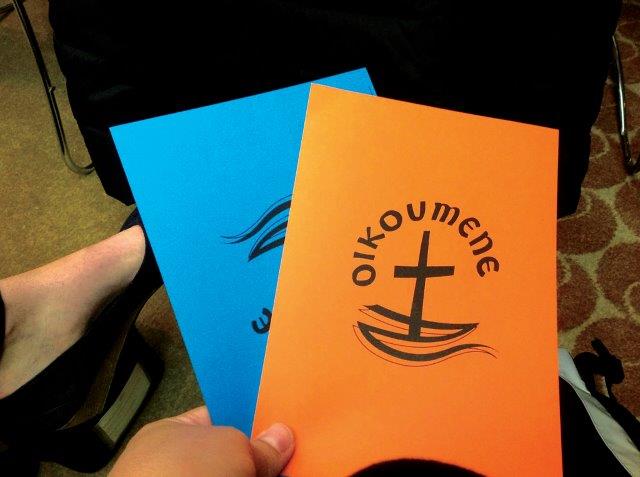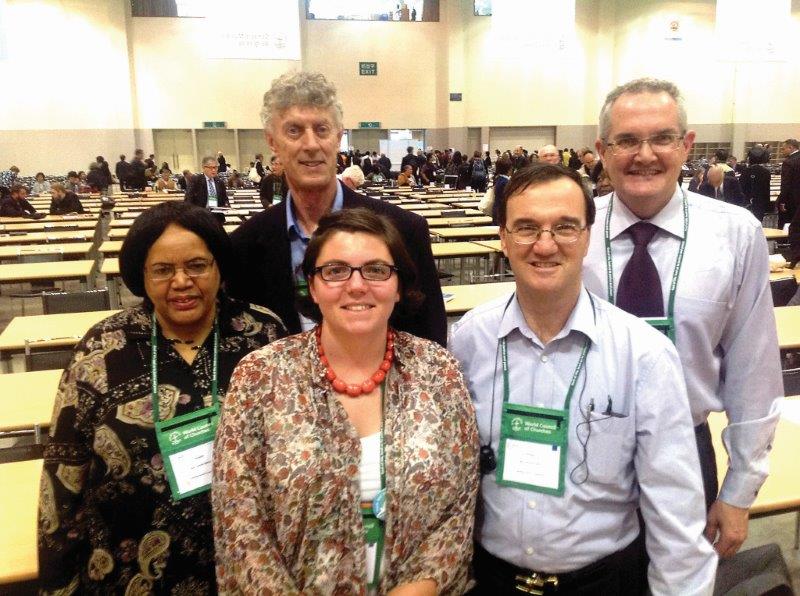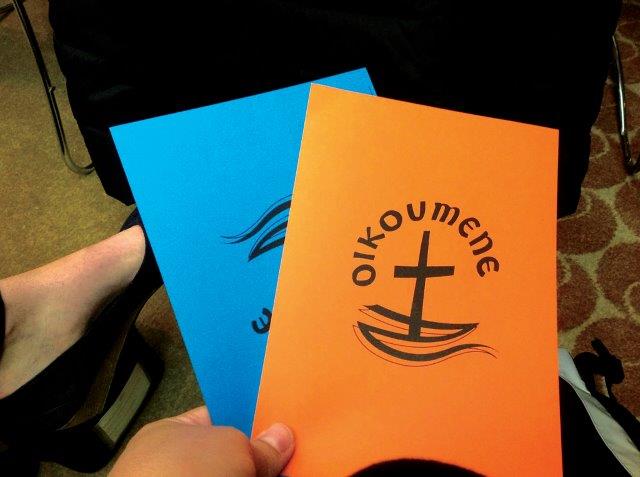Growing up in the Uniting Church I always knew I was a part of the ‘one holy, catholic and apostolic church’ but never understood really what that meant and how it applied to my life. Recently I have had the opportunity of representing the Uniting Church in Australia as a delegate at the World Council of Churches (WCC) Assembly in Busan, South Korea, from 30 October–8 November.

The WCC brings together 349 churches, denominations and church fellowships in more then 110 countries and territories throughout the world, representing over 560 million Christians, including most of the world’s Orthodox churches, scores of denominations from such historic traditions of the Protestant Reformation such as Anglican, Baptist, Lutheran, Methodist and Reformed, as well as many united and independent churches. While the bulk of the WCC’s founding churches were European and North American, today most are in Africa, Asia, the Caribbean, Latin America, the Middle East and the Pacific.
For its member churches, the WCC is a unique space: one in which they can reflect, speak, act, worship and work together; challenge and support each other; share and debate with each other.
The WCC Assembly is the ‘supreme legislative body’ of the WCC, and meets every eight years. The formal purpose of the Assembly is to review programs and determine the overall policies of the WCC, as well as to elect presidents and appoint a Central Committee which serves as the chief governing body of the WCC until the next assembly.
The assembly theme, “God of life, lead us to justice and peace”, was inspired by the diversity of Asian contexts and by a growing sense of urgency to care for life and seek justice. It is both a prayer and a statement of faith, calling Christians to engage with God’s vision of justice and peace so that all may have life in fullness. Throughout the Assembly this theme was explored through worship, Bible studies, plenaries, workshops and prayers.
After attending the WCC 10th Assembly, I now have a new appreciation and understanding of the consensus model of decision making – the same model that the Uniting Church uses.
During the Assembly, I was challenged to think about what it means to be a diverse church seeking unity in Jesus Christ. Can we be a church together if half of us do not support the majority position? The WCC consensus model severely restricts the amount of work that can be transacted; consensus requires significant time for listening and dialoguing between the member churches. Yet the consensus model ensures the broadest support and implementation possible. If we are to seek unity in Christ, we must utilise fresh paradigms to be the church especially in how we work.

As the WCC we are called to be a community of churches on the way to visible unity in one faith and one Eucharistic fellowship, expressed in worship and in common life in Christ (John 17:21). However, the Unity Statement, approved by the Assembly, states “too easily we withdraw into our own traditions and communities refusing to be challenged and enriched by the gifts others hold out to us. Sometimes we seem to embrace the creative new life of faith and yet do not embrace a passion for unity or a longing for fellowship with others. This makes us more ready to tolerate injustice and even conflicts between and within the churches. We are held back as some grow weary and disappointed on the ecumenical path.”
As I continue to reflect on my experience of the WCC 10th Assembly, I am reminded that we are pilgrims on a journey, a pilgrimage of justice and peace. And that through our diversity we are the ‘one holy, catholic and apostolic church.’
Emily Evans
Emily Evans attended the WCC 10th Assembly as a delegate from the Uniting Church in Australia. While there, she was nominated to the WCC Central Committee, representing the Uniting Church for the next eight years.The World Council of Churches 10th Assembly used blue and orange cards to facilitate
their consensus model.)
